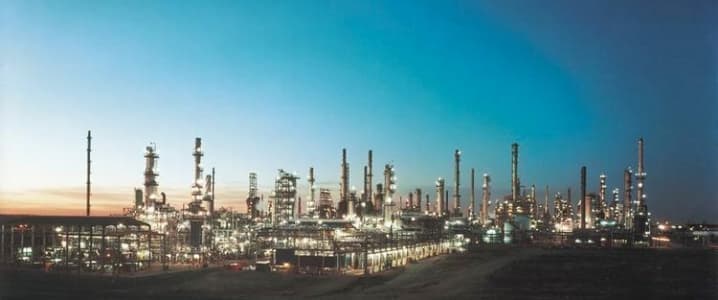The supply disruptions in the oil market may not be over, despite volatility and prices easing in the days after the Abqaiq attack.
The repairs at the Abqaiq processing facility are on an extremely tight timetable. According to Bloomberg, Saudi Aramco had about 50 million barrels in storage within the country prior to the attack, plus around 80 million barrels at ports around the world (although not all of that is usable).
Aramco is determined to keep export levels from falling, choosing to draw down inventories to keep shipments unaffected. It is also opting to slash refining throughput by about 1 million barrels per day (mb/d), which will cut into product exports but will free up crude. One other strategy is to start up production at some offshore fields.
But Aramco vowed to make repairs and bring Abqaiq processing back to pre-attack levels by the end of September, which, at this point, is less than two weeks away. If repairs take longer, then there will be increased scrutiny on Saudi inventories, and any interruptions to buyers would have global impacts. “They probably have about one month of inventories,” Amrita Sen of Energy Aspects told Bloomberg.
It may take a few weeks before more is known. “A lot of October arrival barrels were already on the water so the hole is going to show up toward late October,” a European oil trader told Reuters. “There has been a mad scramble on the paper markets but the physical scramble will come later.”
There is also a growing skepticism that Saudi Arabia will be forthcoming about the true extent of the damage and its ability to turn things around. The “actual longer-term impact of the attacks on the Saudi oil infrastructure is still difficult to judge because the country is likely to play down any potential problems given the importance of its customer relations and the upcoming IPO of Saudi Aramco,” Commerzbank wrote in a note on Friday. Related: Wealthy Saudis Are Being Bullied Into Buying Aramco
If Aramco loses its perception as a reliable supplier it would have severe implications for its valuation when the company goes public. Meanwhile, the FT reports that the Saudi government is bullying wealthy facilities into buying into the IPO to ensure its success. Riyadh is clearly concerned about the perception of Aramco in the wake of the Abqaiq attack.
Also, news surfaced that Saudi Arabia might need to import oil to cover its obligations for customers, which raised questions about Aramco’s ability to keep exports level. Of course, there are going to be some quality issues with the type of oil sitting in storage and what was lost due to the Abqaiq outage, and it’s not uncommon for exporters to also import. But if one of the world’s largest oil producers and exporters is suddenly scrambling to import oil, that raises some red flags.
If they are indeed asking Iraq for oil, that “would suggest that the damage to the Saudi infrastructure is in fact greater and more lasting than the country is willing to admit,” Commerzbank said. For its part, Aramco denied having asked Iraq’s state-owned oil marketing company for oil.
Meanwhile, a raft of other supply outages could also disrupt the oil market, compounding the outage at Abqaiq. A little more than a week ago, Nigeria’s Bonny Light suffered yet another force majeure after disruptions at the Nembe Creek Trunk Line, which has been repeatedly targeted in the past few years. Related: Is Libya Facing A New Oil Crisis?
Also, Reuters reports that Venezuela might see more supply disruptions as buyers steer clear of the country. With storage systems filling up, upstream output might need to be further curtailed. “Storage is almost at top capacity. We are just days ahead of being forced to shut production at some eastern oilfields,” a PDVSA executive said to Reuters. The Petropiar oil blending facility, in which Chevron is a co-operator, suspended operations. That cut production in half at an oil filed that feeds the facility, according to Reuters.
In Libya, battles over control of the National Oil Corporation are escalating. A subsidiary in the eastern part of the country is breaking away and could seek to export oil on its own. A tug-of-war over the legal authority to export oil has led to sudden disruptions in the past.
Then, of course, there is the possibility of a military strike by the U.S. or Saudi Arabia on Iran. It would likely be utterly catastrophic for all involved as it would dramatically increase the odds of an all-out war. Iranian officials have said as much. In a regional war, it’s hard to imagine a scenario in which a much greater volume of oil production capacity is not knocked offline.
By Nick Cunningham of Oilprice.com
More Top Reads From Oilprice.com:
- Oil Prices Up As Iran Prepares For "All Out War"
- Iran’s Supreme Leader Approved Saudi Attacks: Washington
- China Just Got Handed The Oil Deal Of A Lifetime



















One is a delay in the repairs of Aramco’s major facilities for a month or more rather than weeks. The other is a depletion of Saudi stored crude oil.
If repairs take more than a month to complete, this could exhaust Saudi stored oil estimated at 130 million barrels (mb) of which 50 mb in storage on land and another 80 mb at ports around the world. A month’s delay could deplete Saudi stored oil completely impacting adversely on Saudi oil exports, hence the circulating reports about Saudi Aramco asking Iraq to sell it 10 mb of Basra light.
Given the extent of the damage to the Abqaig processing facility and the Khrais oilfield producing 1.2 mbd of Saudi light crude, repairs could be expected to take moths rather than weeks.
Dr Mamdouh G Salameh
International Oil Economist
Visiting Professor of Energy Economics at ESCP Europe Business School, London